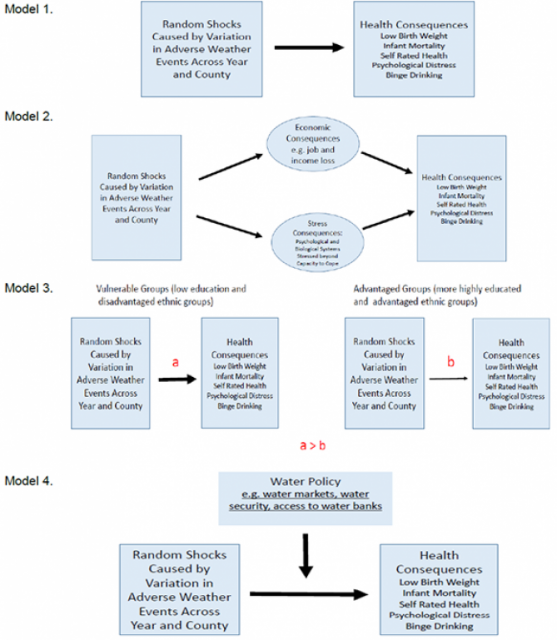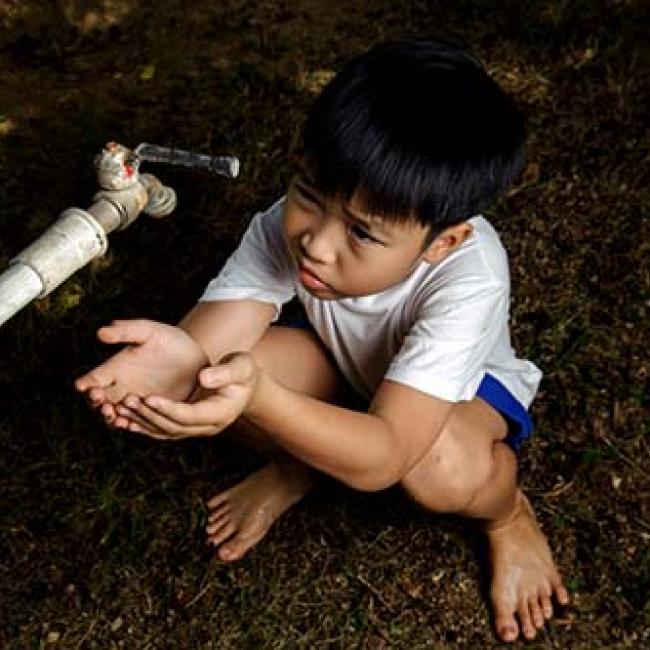Project Summary
The project team assessed whether there is a causal effect of adverse weather events on indicators of population health, and if water policy affects the strength of the link between adverse weather conditions and health. To conduct this research the investigators created a dataset that includes health measures, indices of drought and extreme temperature, and water policy measures, which is publicly available for future research.
Research Questions/Aims
- Is there a causal effect of adverse weather events (AWE) on indicators of population health?
- Is health affected as the counties in which individuals reside move in and out of conditions of drought and extreme temperature?
- Are the health effects of AWE explained by economic consequences such as job and income loss?
- Are the effects of AWE more pronounced among disadvantaged populations as indicated by low educational attainment and/or membership in a disadvantaged racial or ethnic group?
- Can water policy affect the strength of the link between AWE and health? Is there evidence that county level water policies mitigate the consequences of drought and extreme temperature?
Actionability
- Inform water policy that considers the health consequences of drought and extreme temperature alongside other impacts in the development of wise and equitable plans for the distribution of scarce water resources.
Outcomes

Methodology
Briefly, Model 1 shows the causal inference question our difference-in-difference design answered. Model 2 shows the underlying research-supported mechanisms through which adverse weather events (AWEs) are thought to influence health, and Model 3 depicts our hypotheses about differential effects of AWEs on vulnerable populations. Finally Model 4 depicts our second major research questions concerning whether variation in water policy modifies the effect of AWEs on population health.
Spatial-temporal data on adverse weather events, agricultural productivity, and characteristics of water were aggregated to the county level over the past 25 years. This data was merged with individual-level health data on critical health indicators for both newborns and adults which are available within the same temporal (year) spatial (county) units as the drought and temperature relevant data.
A series of difference-in-difference models with the inclusion of time-varying socio-economic and demographic factors allowed the team to gauge whether and to what extent changes in drought and extreme temperatures drives changes in health outcomes after controlling for other possible confounding factors.

University of California, Riverside School of Public Policy
Northeastern University